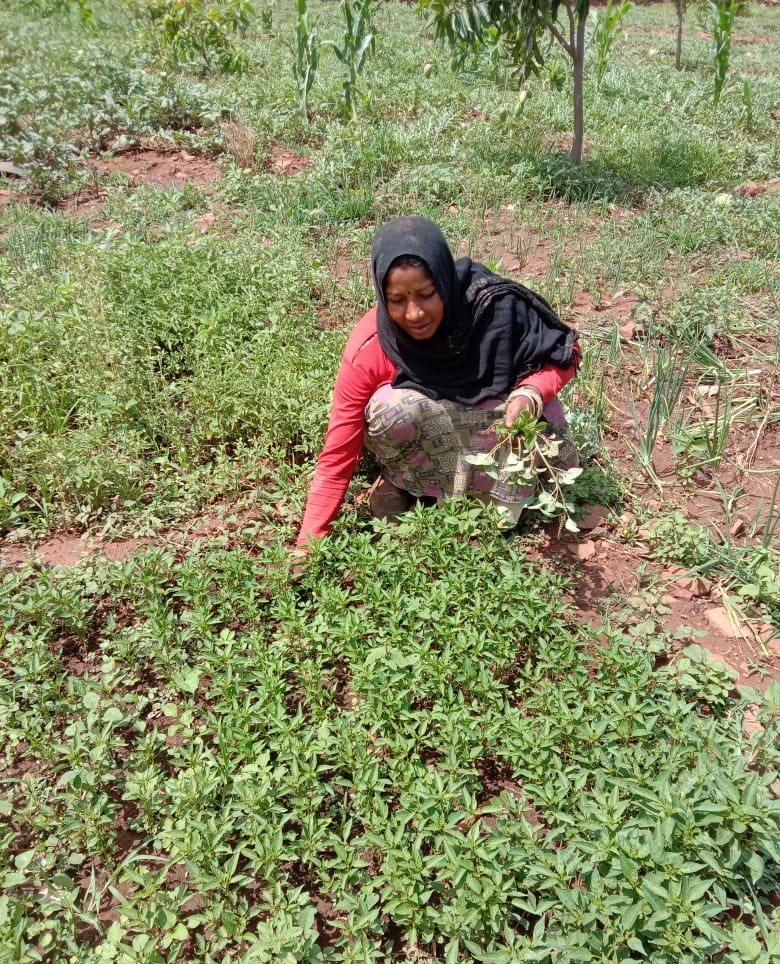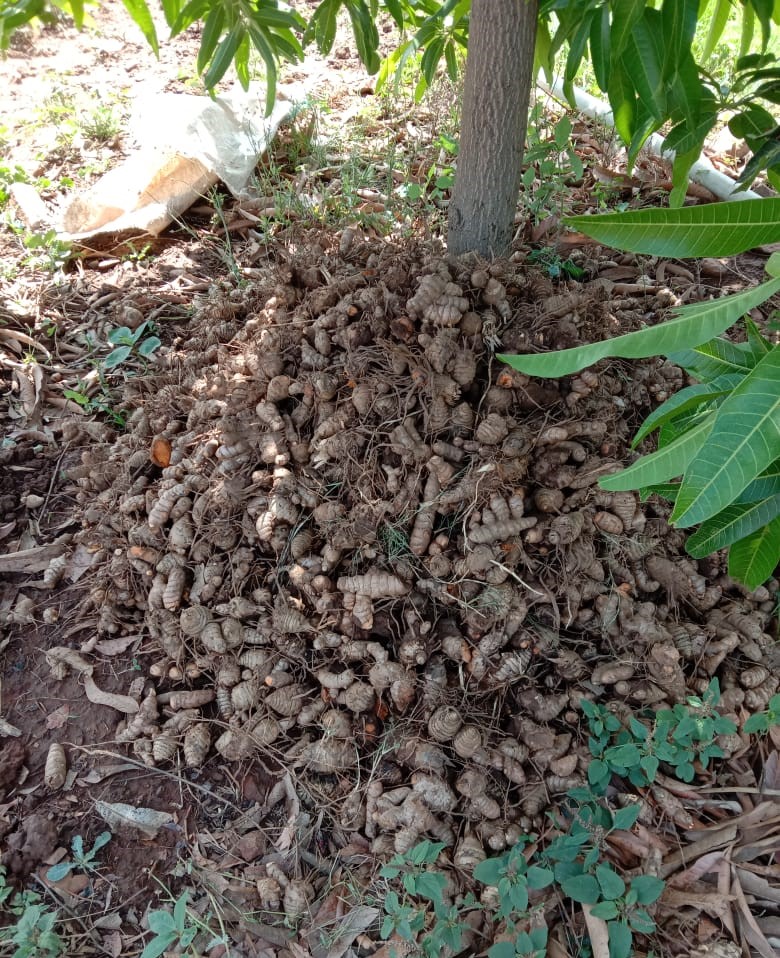“Earlier, I did not know anything about mix cropping. But with the help of the team, I set aside a small section of our land and started growing a variety of fruits and vegetables. This year, I am happy that I have enough produce during this time of the year. Otherwise, we would have migrated looking for work” says Jillobai, a resident of Nayaganv village, Sheopur district, Madhya Pradesh. Until a year back, Jillobai’s family was only involved in traditional farming and did cultivation mostly during Kharif and Rabi seasons. And during the months from March to June they migrated to nearby towns and cities to work as daily wagers. This year, she is glad that she didn’t have to migrate because she is enjoying the fruit of her labour from a nutrition garden which she recently developed.
Ceasing seasonal migration and ensuring food security
Jillobai’s family of five includes her husband, two teenage children and her mother-in-law. Their main source of livelihood came from traditional farming. During the year, they cultivated maize and peanuts in Kharif (monsoon season), and wheat and gram in Rabi season (winter season). And due to lack of knowledge in mix cropping, they had to migrate to nearby towns and cities from March to June, every year.
Jillobai’s village is one of the select villages in Sheopur district where Welthungerhilfe in collaboration with Mahatma Gandhi Seva Ashram (MGSA) is working with the local communities to create nutrition smart villages. The aim is to develop an informed village where communities understand ‘nutrition’ and are aware of the linkages between agriculture, natural resources, WASH, income and nutrition education.

MGSA under the project, supported Jillobai with learnings of mix cropping and sustainable agriculture. On nearly 0.5 bigha of land which she set aside for a nutrition garden, she now grows a variety of vegetables, fruits and spices such as ridge gourd, pumpkin, tomato, bottle gourd, turmeric and watermelons. “I am the first woman farmer in the village to grow watermelons. This Kharif season, I also want to grow chilis. So, I bought some chili seeds with the money that I earned by selling the additional produce from the nutrition garden. I also plan to provide chili plants to 12 other families,” shares an elated Jillobai.
This year produce from the nutrition garden helped Jillobai earn around INR 500 – INR 750 per week. She also had around 50kgs of turmeric production. Jillobai and her family consumes the fresh vegetables and fruits and sells it locally. The produce proved to be vital not only for Jillobai who did not have to migrate during the coronavirus pandemic, but was also beneficial for the locals. She distributed nearly 45kgs of vegetables to her neighbours. They got access to a variety of fruits and vegetables despite the national lockdown due to COVID-19.

“I am happy that vegetables from my nutrition garden helped my neighbours in this time of crisis. I will continue to do mix cropping and help other women in the village to the same”, shares Jillobai. Now, Jillobai and her family is recognized as a nutrition-rich family in the surrounding area. She has already inspired many other women of the village who are now actively involved in household farming and its decision-making processes.
With inputs from Prashant Thorat (MGSA).



